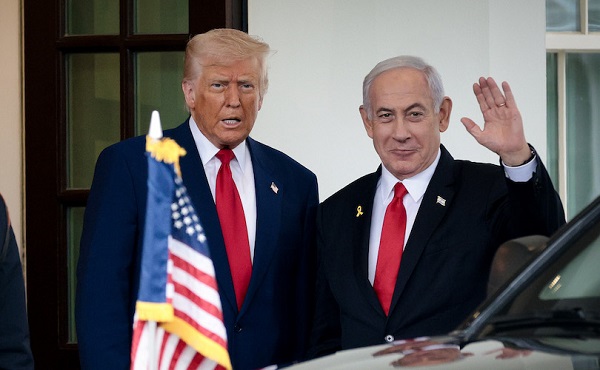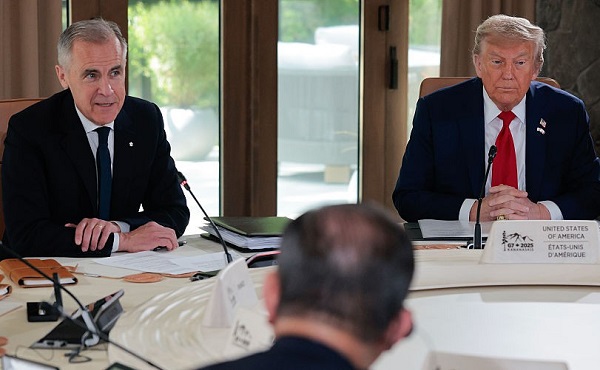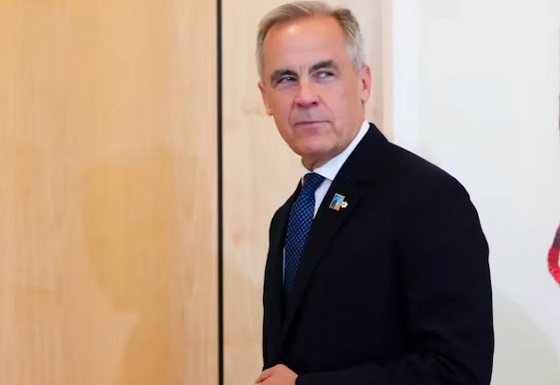International
Israeli media report claims Netanyahu and Trump agreed to end Gaza hostilities

From LifeSiteNews
The apparent deal allows for Gazans to emigrate to unnamed countries, the release of Israeli hostages, the exiling of Hamas leaders, and governance of the Strip by Egypt and the UAE.
A report issued in the Israeli media claims that President Donald Trump and Prime Minister Benjamin Netanyahu agreed to bring the hostilities in Gaza to a rapid end and expand the Abraham accords.
Israel Hayom reported on Thursday that in a phone call directly following the U.S. military bombing of Iran on Monday, the two leaders agreed the war in Gaza would conclude within two weeks.
According to the daily newspaper’s sources, the region will then be governed by the UAE and Egypt in place of Hamas, the leaders of which would be exiled. Additionally, Israeli hostages still being held by Palestinian militant groups would gain their freedom.
However, Arab allied nations have maintained that they will not participate in the rehabilitation of Gaza apart from the region being turned over for management to the West Bank’s Palestinian Authority as a preparation for a two-state solution demanded under international law, though Netanyahu flatly rejects considering this option.
Additionally, there is no indication from Hamas leaders that they would accept these apparent terms.
Also joining Trump and Netanyahu on this call, according to the report, were U.S. Secretary of State Marco Rubio and Israeli Strategic Affairs Minister Ron Dermer.
Further terms discussed on the call include the potential transfer of Gaza survivors who wish to escape their current plight and emigrate to other unnamed countries, while the new government of Syria and Saudi Arabia would recognize Israel and establish diplomatic ties with the expectation that other Arab and Muslim countries will then do the same.
For its part, Israel would declare its willingness “for future Palestinian conflict resolution under the ‘two states’ concept, contingent upon the Palestinian Authority reforms.”
Strangely, following the expression of such support, the apparent deal includes a U.S. recognition of “limited Israeli sovereignty implementation in Judea and Samaria (the West Bank),” suggesting the negation of Palestinian sovereignty over its internationally recognized territory, a constituent aspect of statehood.
Consistent with the requirements of international law, Arab nations maintained their willingness to recognize Israel and guarantee its security with the ending of their occupation of internationally recognized Palestinian territory and the allowance of an independent and sovereign Palestinian state to emerge on these lands.
Such a solution is supported by the overwhelming number of national governments of the world and the Catholic Church as witnessed to by the unanimous and constant testimony of the bishops in the region and the Holy See over decades.
Hmmm. pic.twitter.com/IbYrjGCegS
— 🇨🇦 Antonio Tweets (@AntonioTweets2) June 23, 2025
Business
Trump announces end to trade negotiations with Canada over costly digital service tax

From LifeSiteNews
Donald Trump made the announcement Friday, citing frustration with Canadian tariffs on U.S. dairy products and its newly-enacted digital services tax.
U.S. President Donald Trump announced Friday an immediate halt to trade negotiations with Canada, citing frustration with Canadian tariffs on U.S. dairy products and its newly-enacted digital services tax.
Starting June 28, Canada’s digital services tax imposes a 3 percent tax on revenue from “[c]ertain digital services that rely on engagement, data, and content contributions of Canadian users” and “[c]ertain sales or licensing of Canadian user data.”
The Albany Times Union notes that the tax would apply to companies such as Amazon, Google, Meta, Uber, and Airbnb, but most critically from an American perspective “will apply retroactively, leaving U.S. companies with a $2 billion U.S. bill due at the end of the month.”
On Friday afternoon, Trump took to Truth Social to declare, “We have just been informed that Canada, a very difficult Country to TRADE with, including the fact that they have charged our Farmers as much as 400% Tariffs, for years, on Dairy Products, has just announced that they are putting a Digital Services Tax on our American Technology Companies, which is a direct and blatant attack on our Country.”
“They are obviously copying the European Union, which has done the same thing, and is currently under discussion with us, also,” the president continued. “Based on this egregious Tax, we are hereby terminating ALL discussions on Trade with Canada, effective immediately. We will let Canada know the Tariff that they will be paying to do business with the United States of America within the next seven day period. Thank you for your attention to this matter!”
🚨 HUGE: Trump announces IMMEDIATE END to trade negotiations with Canada’s. Tariffs to be announced within 7 days.
📸 Screenshot says it all 👇 pic.twitter.com/v0SefdB2MM— John-Henry Westen (@JhWesten) June 27, 2025
The United States currently imposes a 25 percent tariff on goods deemed not compliant with the United States-Mexico-Canada Agreement (USMCA), the trade agreement Trump negotiated in his first term to replace NAFTA; a 10 percent tariff on USMCA non-compliant energy products; and a 10 percent tariff on USMCA non-compliant potash.
Politico reports that Trump and Canadian Prime Minister Mark Carney had previously set a July 16 deadline for a new trade agreement, under which it was hoped that existing tariffs would be lifted. Instead, onlookers are now bracing to see what new tariff rates will be.
The tariffs on Canada are part of the Trump administration’s broader series of varying tariffs on most other nations (which have been adjusted, lifted, and delayed at various points over the past several months). Supporters say the trade war is necessary to make international trade fairer and spur a return of domestic manufacturing; opponents argue they increase costs on American consumers and small businesses.
Business
China still squeezing rare-earth exports despite U.S. pact

Quick Hit:
Weeks after agreeing to ease restrictions, China continues to stall rare-earth magnet exports, causing Western manufacturers to scramble for critical components and raising fears that Beijing is weaponizing its supply chain leverage.
Key Details:
- Applications for rare-earth magnet exports are being delayed or denied despite a U.S.-China agreement to resume trade.
- Western firms report that supply remains critically low, with some forced to redesign products or ship components by air to avoid shutdowns.
- China’s approval process demands sensitive commercial data, fueling concerns of industrial espionage and political pressure.
Diving Deeper:
Despite pledging to ease export restrictions on rare-earth magnets in a deal with the United States earlier this month, China continues to strangle the flow of these critical components, leaving Western industries on edge and trade tensions simmering.
Western companies say the situation has barely improved since China’s Ministry of Commerce promised to accelerate export license approvals. In practice, approvals remain rare, applications take weeks to process, and many are outright rejected. The bottleneck is hitting manufacturers hard—particularly automakers and electronics producers—who rely on China’s near-monopoly of the world’s most powerful rare-earth magnets.
“It’s hand to mouth—the normal supply-chain scrambling that you have to do,” said Lisa Drake, Ford’s VP of industrial planning for EVs. Though she acknowledged some improvement, she made clear the shortages are forcing operational gymnastics to avoid production halts.
The restrictions stem from export controls Beijing implemented in April, shortly after President Donald Trump imposed heavy tariffs on Chinese goods. While China claimed the license system was meant to regulate military-use exports, the real-world effect has been a sharp drop in rare-earth magnet shipments to the U.S.—down 93% in May compared to last year.
Although the White House announced that China had agreed to resume exports in exchange for reduced U.S. restrictions on certain American goods, the ground reality tells a different story. Export licenses are now limited to six months, and applicants must submit highly sensitive commercial details—such as magnet integration designs and buyer contacts—raising red flags for many Western firms. When companies decline to provide such data, licenses are often denied or stalled for 45 days or more.
“Yes, the export restrictions have been paused on paper. However, ground reality is completely different,” said Neha Mukherjee of Benchmark Mineral Intelligence, citing chronic bureaucratic delays.
Chinese officials claim they’ve approved “a certain number” of licenses, but industry insiders say approvals favor large, state-backed magnet companies. Smaller Chinese producers are suffering under the export squeeze and some are trying to collaborate with foreign buyers to bypass restrictions—such as promoting less-powerful magnets not subject to the controls.
However, these substitutes are often inadequate for high-performance applications like automotive motors, AI servers, and defense systems. Some manufacturers have begun redesigning their products, while others are resorting to expensive airfreight to keep assembly lines alive. As one U.S. importer put it, “These are the things you don’t hear about, how much money it is taking to keep these factories running, you know, limping along.”
Meanwhile, Europe is growing more vocal. Germany’s top industry association recently called on its government to challenge Beijing’s tactics, warning that “licensing procedures must not be used as a means of exerting political pressure.”
All signs point to a calculated effort by Beijing to maintain leverage over the West—despite public commitments to ease trade. With China controlling 90% of global supply for these crucial materials, the U.S. and its allies are now forced to confront a familiar truth: when it comes to rare earths, China holds the cards, and it’s not afraid to play them.
-

 MAiD1 day ago
MAiD1 day agoCanada’s euthanasia regime is not health care, but a death machine for the unwanted
-

 Alberta1 day ago
Alberta1 day agoAlberta’s government is investing $5 million to help launch the world’s first direct air capture centre at Innisfail
-

 Business1 day ago
Business1 day agoOttawa Funded the China Ferry Deal—Then Pretended to Oppose It
-

 Alberta2 days ago
Alberta2 days agoThe permanent CO2 storage site at the end of the Alberta Carbon Trunk Line is just getting started
-

 armed forces1 day ago
armed forces1 day agoIt’s not enough to just make military commitments—we must also execute them
-

 Business1 day ago
Business1 day agoMunicipal government per-person spending in Canada hit near record levels
-

 armed forces1 day ago
armed forces1 day agoMark Carney Thinks He’s Cinderella At The Ball
-

 Business1 day ago
Business1 day agoCarnival Cinemas moving downtown: Owner Bill Ramji buys former Uptown Cinemas from RDP






